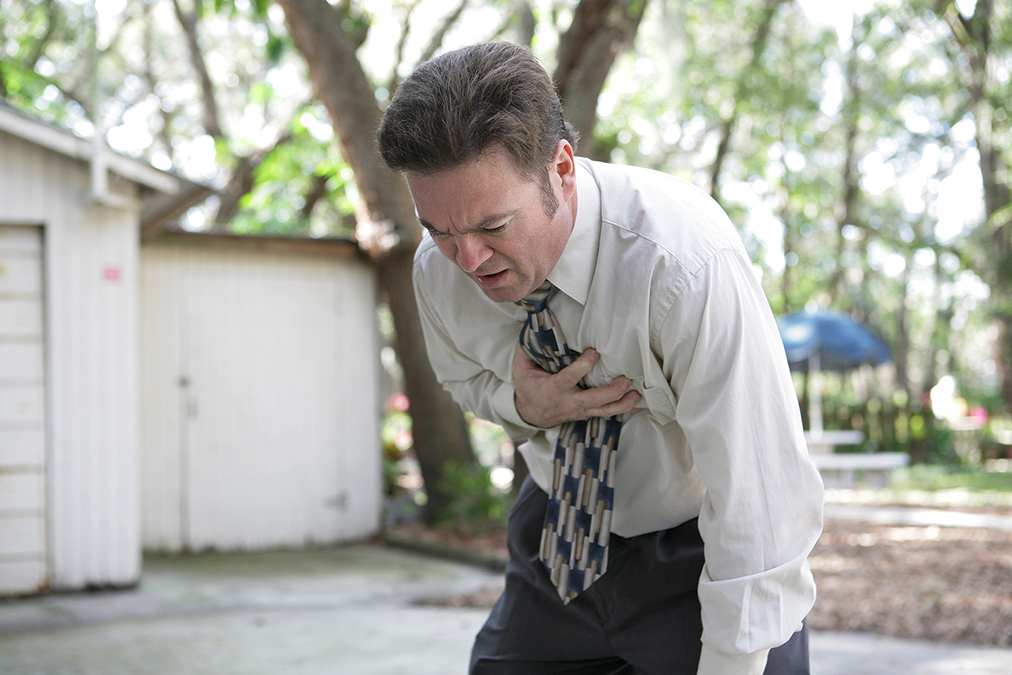 It’s a well-known fact that cholesterol plaque buildup in the arteries is dangerous.
It’s a well-known fact that cholesterol plaque buildup in the arteries is dangerous.
What fewer people understand is that more dangerous than the plaque buildup itself is when the plaque breaks off and shoots up into the brain (causing stroke) or blocks narrower heart arteries (causing heart attack).
But why does the plaque come loose (instead of being absorbed into the body) and what can we do to prevent this from happening?
This is the subject of a new study published in the journal Nature.
What the scientists discovered was that when cholesterol plaque starts to form somewhere, the immune system realizes something is wrong and sends in the cavalry, which in this case are white blood cells called neutrophils.
Neutrophils use inflammation to kill foreign invaders such as viruses and bacteria, and they do the same for cholesterol plaques too.
But cholesterol plaques are tenacious beasts. They embed themselves in your arterial walls, so unfortunately when the neutrophils attack them with inflammation, the smooth muscle cells inside these walls are also damaged.
In fact, the smooth muscle cells are damaged anyway by the toxic proteins released by the cholesterol plaques. These smooth muscle cells do their best to keep the plaques in place, preventing them from breaking off and causing things like heart attacks. However, they end up being attacked from both sides, by the plaques and by the neutrophils that are trying to help.
So, as you can see, the body just isn’t capable of combating cholesterol plaques. When they attach to the walls of your arteries they damage them, and when your immune system tries to help, it causes even more damage.
The good news is that all the cholesterol plaque buildup is caused by ONE ingredient you didn’t even know you were consuming. Cut out this ONE ingredient, explained here, and experience your cholesterol plaque evaporate without getting loose…
And if you have high blood pressure, discover these 3 easy exercises to drop blood pressure below 120/80—starting today…

 Overcoming IBD
Overcoming IBD Multiple Sclerosis
Multiple Sclerosis Banishing Bronchitis
Banishing Bronchitis Gum Disease Gone
Gum Disease Gone Overcoming Onychomycosis
Overcoming Onychomycosis Neuropathy No More
Neuropathy No More The Prostate Protocol
The Prostate Protocol Brain Booster
Brain Booster
 Ironbound
Ironbound
 Solution for Shingles
Solution for Shingles
 The Bone Density Solution
The Bone Density Solution
 The Ultimate Healing Protocol
The Ultimate Healing Protocol
 The Parkinson's Protocol
The Parkinson's Protocol
 The Chronic Kidney Disease Solution
The Chronic Kidney Disease Solution
 Overthrowing Anxiety
Overthrowing Anxiety The Fatty Liver Solution
The Fatty Liver Solution The Hypothyroidism Solution
The Hypothyroidism Solution
 The End of Gout
The End of Gout The Blood Pressure Program
The Blood Pressure Program
 The Oxigized Cholesterol Strategy
The Oxigized Cholesterol Strategy
 Stop Snoring And Sleep Apnea Program
Stop Snoring And Sleep Apnea Program
 The Arthritis Strategy
The Arthritis Strategy The Vertigo & Dizziness Program
The Vertigo & Dizziness Program The 3-Step Diabetes Strategy
The 3-Step Diabetes Strategy Hemorrhoids Healing Protocol
Hemorrhoids Healing Protocol The Erectile Dysfunction Master
The Erectile Dysfunction Master Weight Loss Breeze
Weight Loss Breeze The IBS Program
The IBS Program The Insomnia Program
The Insomnia Program The Migraine and Headache Program
The Migraine and Headache Program The Neck Pain Solution
The Neck Pain Solution The Menopause Solution
The Menopause Solution The Ejaculation Master
The Ejaculation Master The TMJ Solution
The TMJ Solution The Acid Reflux Solution
The Acid Reflux Solution The Fibromyalgia Solution
The Fibromyalgia Solution The Psoriasis Strategy
The Psoriasis Strategy